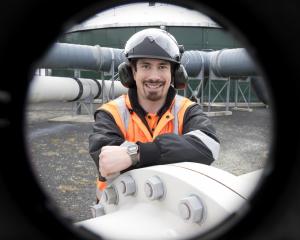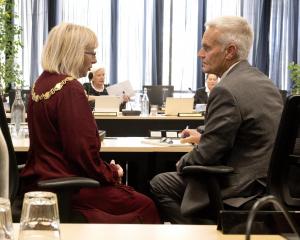The Dunedin City Council is keeping a close eye on the Hawke’s Bay water contamination crisis to make sure its system is not subject to the same risks.

The Hawke’s Bay District Health Board said yesterday it appeared 4100 people were affected by a gastric illness outbreak in the region.
The local council chlorinated the Hastings water supply after a water tanker at Havelock North High School had an indicator of E. coli, later shown to be a false positive.
In the wake of the crisis, council group manager, water and waste, Dr Laura McElhone said staff were keeping an eye on the situation.
"At this stage, it is not clear how the Havelock North bores became contaminated.
"Staff are continuing to monitor the information coming from the Havelock North incident, so that we can check that our system is not subject to the same risks that allowed the Havelock North incident to occur."
Unlike Hastings, Dunedin’s drinking water was already treated with chlorine, apart from most of Mosgiel.
The council occasionally got an "indicator" for E. coli from sampling in Mosgiel. There was one instance in the last year.
"We immediately turned off the water supply from that bore and notified ... Southern District Health Board."
Follow-up tests showed E. coli was not present in the water supply and after three days of clear sampling the bore was returned to operation.
"We have never had a confirmed presence of E. coli from any of our groundwater bores."
Mosgiel’s water came from bores and water drawn from a deep aquifer not influenced by water from the surface.
The bore heads had to conform to strict standards to ensure there was no way for bacteria or other pathogens to enter them and staff checked them fortnightly to ensure they were secure.
A water sample from each bore is taken every month and tested for E. coli and at least one sample is taken each day from somewhere in the Mosgiel distribution system to check for bacterial contamination.
This exceeded the sampling frequency required by drinking water standards.
The council followed strict protocols to ensure a fast and robust response if a positive E. coli test was returned.
If the failed sample came from a bore, that bore would be taken out of service immediately and if required, a boil water notice was issuedIf multiple bores were affected, such as in the remote possibility the aquifer became contaminated, the council could turn off all the bores and supply Mosgiel with chlorinated and fluoridated water from the Mount Grand water treatment plant.
This was also the case if there was an indication that the network itself had become contaminated.










